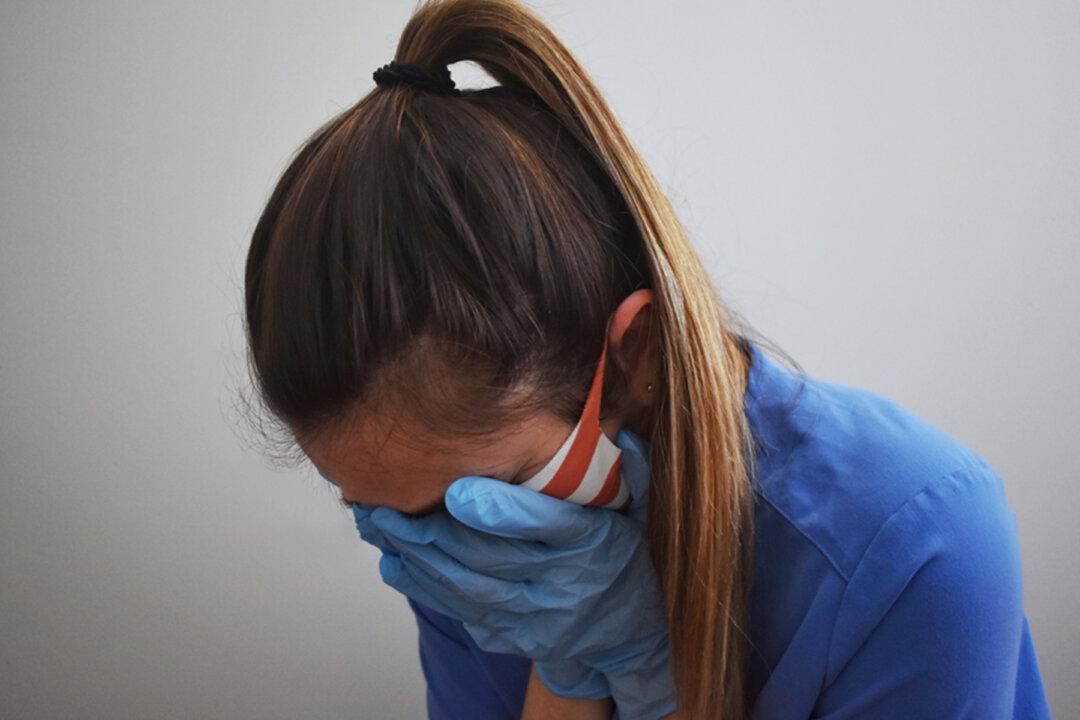A uniformed care worker shopping in a British supermarket was reduced to tears by a confrontation with a fellow shopper. A concerned woman accused her of “spreading germs,” claiming, however, that it had nothing to do with the COVID-19 pandemic.
Care worker Kimberley Simpson, from Burton-upon-Trent in Staffordshire, England, filmed the upsetting interaction, and her story made national headlines on May 25, 2020.





